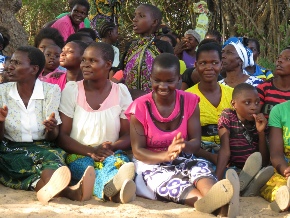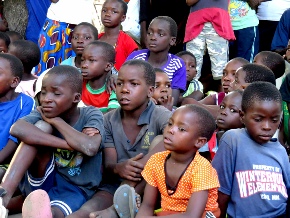10 years ago, in November 2011, the Breuckmann Foundation was officially registered
as a legal foundation in the Foundation Register of the responsible Regierungspräsidium
Tübingen under No. 24-1/0563-105 BK. Since December 2013, i.e. for 8 years now, we
have been supporting mainly projects in the north of Malawi that are dedicated to
the topics of population growth, family planning, voluntary birth control as well
as sexual and reproductive health.
We would like to thank all of you who have supported us and our projects during this
time, also on behalf of all the people whom we have been able to help with your donations.
In recent years, we have often been asked why we focus on these long-term objectives
when so many other issues urgently need short-term help. We are well aware of the
current problems and needs in many parts of the world and also here in Germany. But
we are also firmly convinced that we must target the causes of many of these problems,
hopefully in time.For us, the focus here is on the continuing and often uncontrolled
growth of the world's population, especially in Africa, and the associated constantly
increasing extensive consumption of almost all the resources that the Earth's ecosystem
offers us. We therefore see it as part of our work, too, to raise awareness of these
issues among the general public.
Matthias Glaubrecht, Professor of Biodiversity at the Centre for Natural History
of the University of Hamburg, writes in his book
DAS ENDE DER EVOLUTION, Der Mensch und die Vernichtung der Arten
ISBN 97B-3-570- 10241-1 bzw. ISBN 97B-3-570-55448-7
„Wer immer sich Gedanken um das zukünftige Leben auf der Erde macht, dem raubt vor
allem dieses Wachstum der menschlichen Bevölkerung den Schlaf. Es ist unbestritten
die wichtigste Herausforderung der Zukunft, wenn es nicht sogar als eine die existenziellen
Lebens-bedingungen der Menschheit bedrohende Gefahr eingestuft wird.“
( "Whoever is concerned about future life on earth, it is above all this growth of
the human population that robs them of the sleep. It is indisputably the most important
challenge of the future, if it is not even classified as a danger threatening the
existential living conditions of humanity." )




